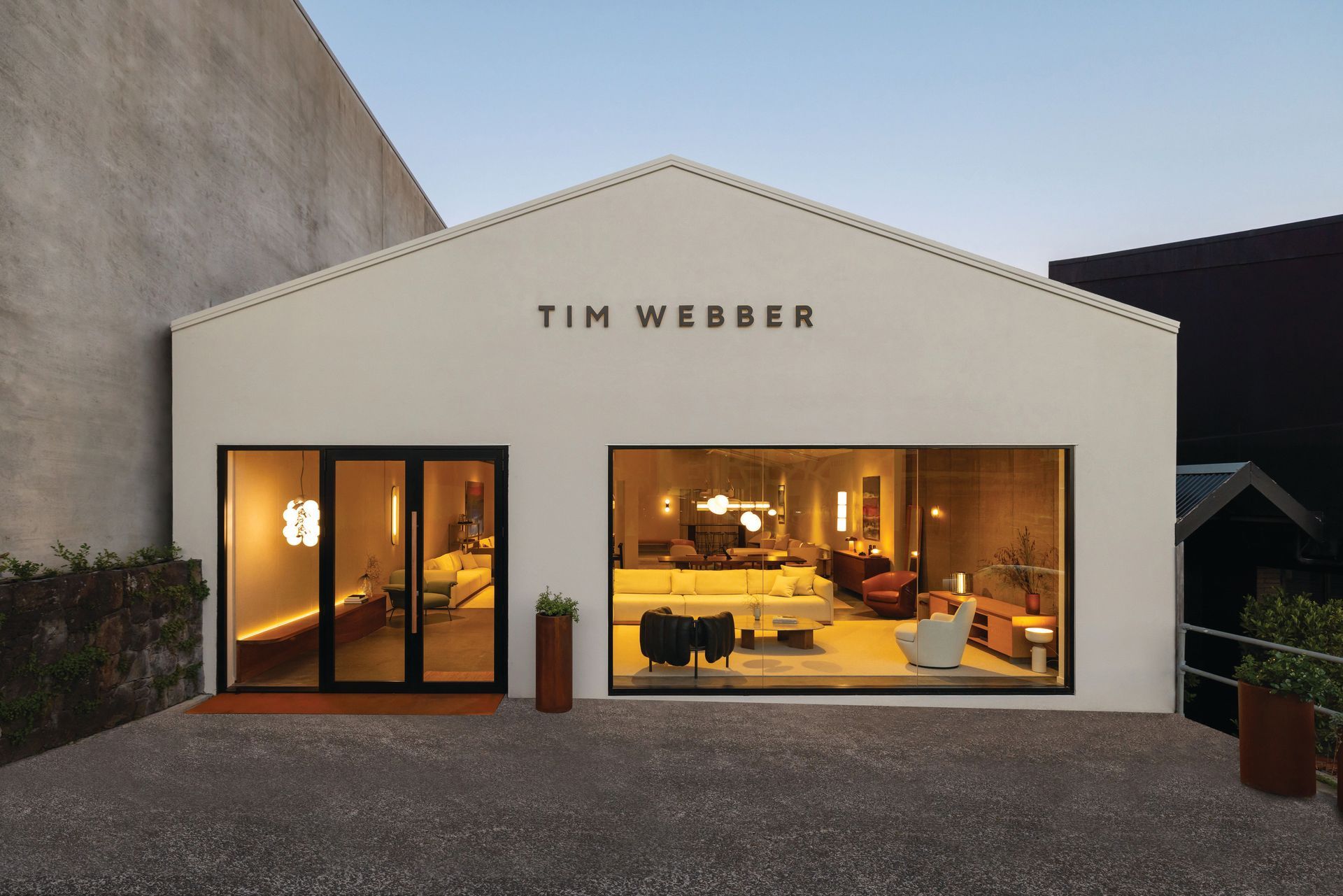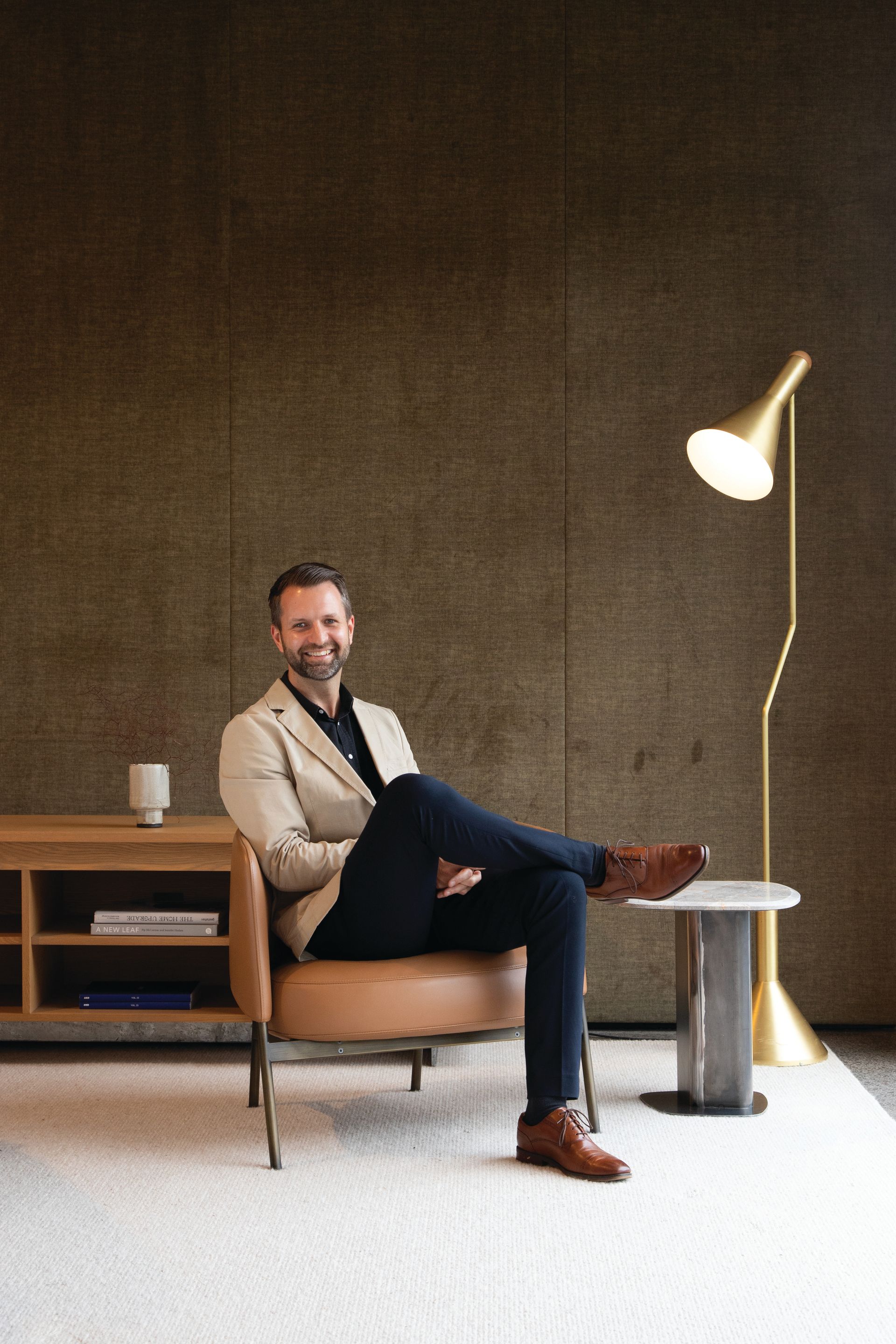
Tim Webber's full circle
Bespoke furniture design nestled on Nugent Street
Tim Webber credits naivete and living like a broke student for his initial foray into the furniture design business. Having graduated with a degree in object design from Unitec’s School of Architecture, he found himself in the middle of the global financial crisis and no one was hiring.
“There was the opportunity to try something and if it didn't work, it was kind of fine, I could carry on and find something else,” explains Tim.
But it did work – and with incremental self-funded growth, 15 years later Tim has opened a beautiful new showroom on Nugent Street. He’s in good company – there’s a hub of companies servicing interiors on the same street, and while Nugent Street isn’t known for pedestrian foot traffic, most of the showrooms, including Tim’s, have convenient off-street parking.
Tim says his father’s help and advice was instrumental in those early days. He was importing a beautiful birch plywood product from Europe and it provided Tim with a raw material at a reasonable price, starting with offcuts and the odd piece free of charge.
“A lot of my early furniture was built from the product my dad was importing and selling, so I had a raw material as a kickstart to get me going with prototyping and that kind of thing.”
Tim had found an aesthetic focus and his first range of 10 pieces featured the European birch. Some of the core range still includes this material. He got a lucky break with Bo Concept, which agreed to retail his product. Then he grew big enough to have his eponymous store within a store on the second floor of The Bloc.
Now his latest showroom is a few minutes from The Bloc – back to where it all began. “It has been quite nice coming in full circle and ending up back there with my own standalone store.”
In the light-filled showroom, a stunning extra-long sofa is resplendent in thick ivory woollen upholstery. Geometric lights hang from the ceiling, there’s a sleek dark dining table and angular contemporary chairs – it’s all so sumptuous, with green plush panels on the wall.
And it’s here that his team meet suppliers, interior designers and architects. There’s plenty of room for collaboration and a choice of tables and sofas to have a meeting.
Tim’s creative inspiration comes from sculpture, architecture and anything other than furniture, which he actively tries to avoid so that nothing he designs looks like a derivative of anything else.
And collaboration is key to Tim Webber’s custom design.
“I've always enjoyed working with people, the local makers and craftsmen, and it's allowed me to be a lot more flexible and develop new products without the pressure of overseas factory minimums.
“I can get the details of any product really well refined locally. It’s also sustainable – we're reducing the impact of travel and freight in a huge way.”

Tim almost went into architecture, but says he was more interested in the potential of being able to make things and do things with his hands. These days he does the prototyping and works with many local crafts people, praising the furniture-making talent here.
“There’s some really great craftsmen here. I think what we can actually achieve in New Zealand is often underrated, and working locally is keeping those industries alive.”
Residential furniture is only part of the business; Tim has branched into commercial furniture and has a niche designing and making bespoke furniture for interior design and architect clients. He has built some great relationships in the sector and found they have championed his work and support his furniture.
Now aged 36 – 15 years on from the bold yet naive 21-year-old – he is still excited about his business possibilities, such as setting up manufacturing in Australia so he can continue his local production story. The business now employs seven people and he works with a suite of suppliers, from upholstery to furniture production. He travels annually to Milan furniture fairs and has picked up the New Zealand agency for a couple of Canadian brands, including Bensen, which has a similar craftsmanship to his own label. These brands complement each other and make for a complete furniture offering.
Growth has meant his own role has changed. These days, Tim is more focused on the business than making things. He still prototypes and says “we are constantly trying to elevate the brand, the aesthetic and the quality of our products”.
His advice for anyone who wants to start a business is to get a great mentor. He had his dad in the early days, who was invaluable. He now works with a business coach with whom he can bounce ideas, delve into the numbers and hear someone else’s perspective and views. And if the first 15 years are anything to go by, the next 15 will most certainly be a rise to the top for Tim Webber.

